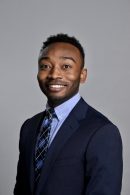
Second row: Ricardo (Rico) Brooks, Amie Skattebo, James LeBreton, Greg Loviscky
Not pictured: Ming Him Tai
Doctoral Program Faculty


Liberal Arts Professor
Industrial/Organizational Area Coordinator
(814) 863-1867


Professor of Psychology
Director of Team Science for the Clinical and Translational Science Institute (CTSI)
(814) 863-7387
